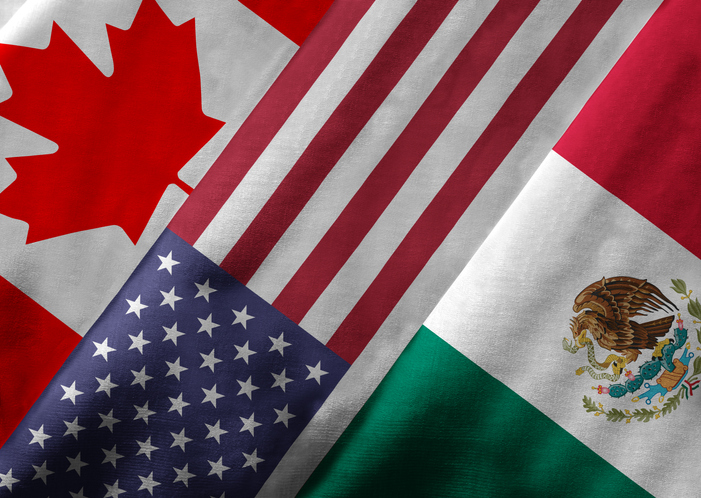For merchandise entered into commerce after July 1st, the North American Free Trade Agreement (NAFTA) rules no longer apply. After almost 27 years of trading under NAFTA, the U.S. Customs and Border Protection (CBP) has implemented the United States-Mexico-Canada Agreement (USMCA). The new trade legislation has largely had bipartisan support, with all in favor of growing our economy through restructured markets, increased transparency and efficiency in regulatory practices, and policies centered around fairness in trading.
“The USMCA establishes North American trade rules as the new global gold standard and offers CBP new tools to carry out our vital trade facilitation and enforcement mission. CBP will continue to work closely with the trade community, our U.S. Government partners, and our Mexican and Canadian counterparts to ensure a smooth transition from NAFTA and support the prosperity of the U.S. economy, American workers, and public safety,” said Brenda Smith, Executive Assistant Commissioner, CBP Office of Trade.
The USMCA provides updated rules of origin, provisions for customs administration and trade facilitation, enhanced security and enforcement of trade regulations, intellectual property rights protections, and fair labor conditions in an effort to modernize trade between its countries of namesake. Alongside many other provisions the Agreement brings to the table, the USMCA includes several standards of note that will be particularly beneficial to small businesses, the automotive sector, and manufacturing companies.
Provisions for Small Businesses
The USMCA has increased the de minimis shipment value level, allowing small- and medium-sized businesses to take advantage of cross-border trade and for lower costs to reach customers. The Agreement raises Canada’s tax-free de minimis level for express shipments to up to C$40 (previously up to C$20), and raises the level for duty-free shipments to up to C$150. Mexico’s tax free de minimis level for express shipments remains at USD $50, and the duty free level for express shipments has been raised to up to USD $117.
An informal shipment level of $2,500 has been established to reduce paperwork for express shipments falling under that amount. Additionally, the Agreement has updated existing policy on duty-free temporary admission of goods to now cover shipping containers.
Provisions for the Automotive Sector
The USMCA continues tariff-free vehicle and auto part exchanges for dealerships in North America, incentivises new investments in U.S.-produced automobiles and parts, increases U.S. jobs in this sector, and brings more R&D back to the home front. The Agreement raises the Regional Value Content (RVC) requirements from 62.5% to 75%. It requires at least 70% of a producer’s steel and aluminum purchases to originate in North America and reduces free riding by eliminating a steel and/or aluminum producer’s ability to deem non-North American content as originating, regardless of origin.
To help U.S. automotive manufacturers and workers, the Agreement also established a Labor Value Content (LVC) Rule, requiring 40-45% of qualifying vehicles to be produced by U.S. employees making an average of $16 per hour.
Provisions for Manufacturing Companies
The USMCA maintains originating goods as duty-free, upholds the waiver of certain customs processing fees, and keeps the prohibition of export duties, taxes, or other charges in place. The Agreement includes provisions for transparency in import and export licensing procedures. It prohibits the application of import restrictions on used goods to remanufactured goods and prohibits restrictions on the importation of commercial goods that contain cryptography. Under the new law, requirements to use local distributors for importation and requirements for consular transactions, including associated fees and charges, are also prohibited.
For textiles and apparel, the rules allowing some use of non-NAFTA inputs have been limited. And, in order to qualify for trade benefits, new guidance for certain materials, such as sewing thread, pocketing fabric, narrow elastic bands, and coated fabric, are in place, requiring these products to be made in the same region as the finished product.
CBP has created a USMCA Center for the trade community to find information, ask questions, and express concerns related to the USMCA.
Contact ARB
ARB provides specialized services to small businesses, automotive dealerships, and manufacturing companies. Our professionals are dedicated to these industries, and we’re here to help you meet your unique needs. Contact us today.
by Samantha Pedersen, CPA





